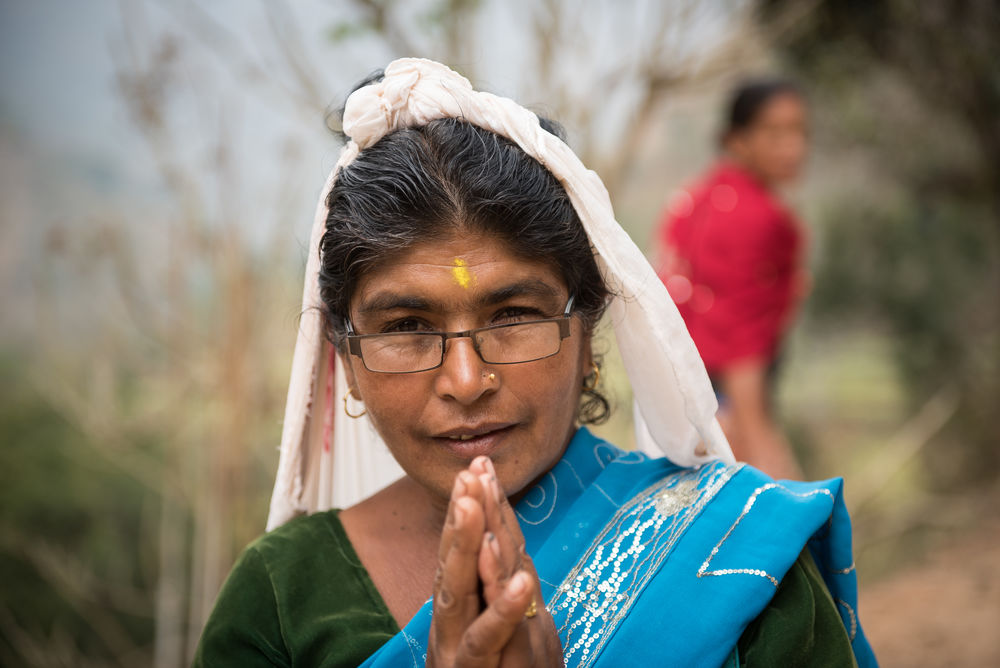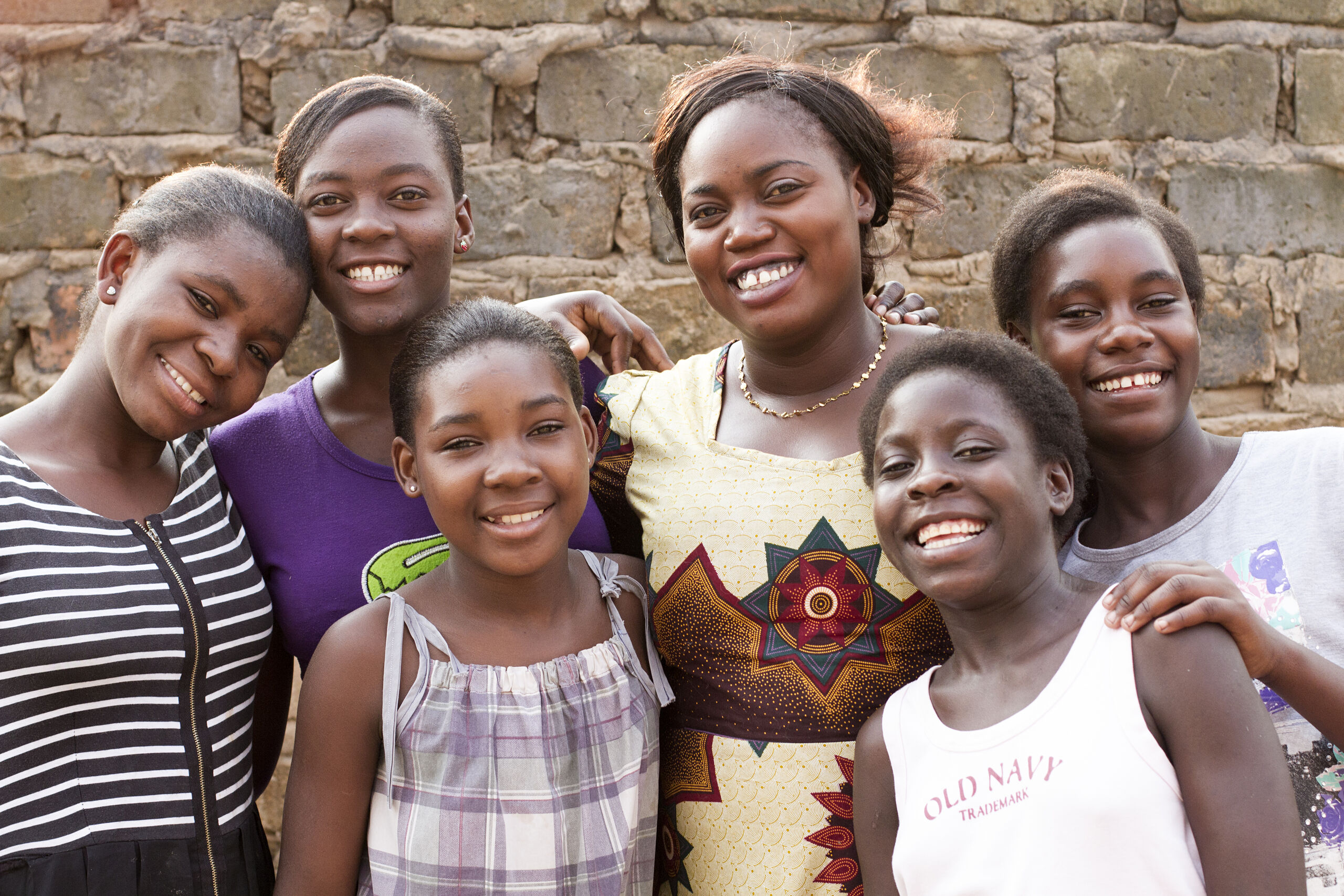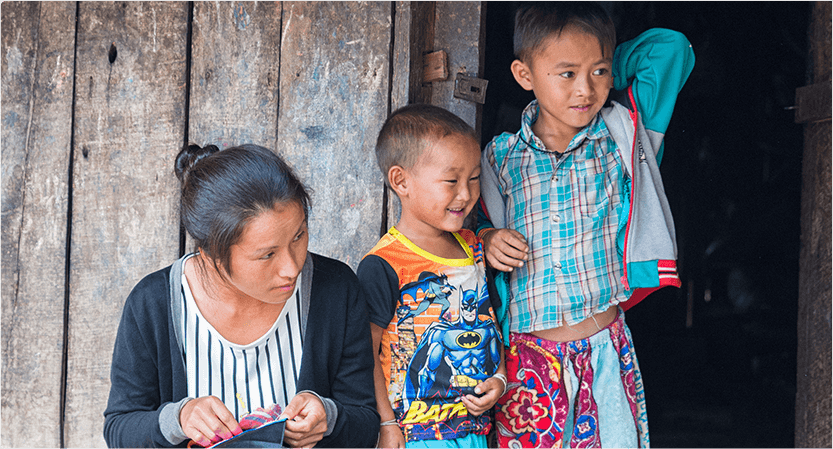We honor the life of George Verwer, our founder. Read More

Jamal, a near-culture worker, disciples men and teaches them to share with their own families.
Before Jamal* and his wife, Yulduz*, got engaged, he told her he had a passion for the Muslim world. “I want to serve in Central Asia, but I don’t know where,” he said. At the time, Yulduz, a professional nurse, was earning a decent salary and didn’t see herself leaving her home country in South Asia.
Out of love for Jamal and obedience to God, she prayed honestly, “God, I’m not ready to leave, but if You will it, please make me ready.” Faithfully continuing this prayer, she began to experience peace. “One day I was praying, and I got encouraged by Ezra 10:4 – ‘Rise up; this matter is in your hands. We will support you, so take courage and do it’ (NIV). I felt God saying to me, ‘Yes, I am with you.’”
It took almost two years of prayer and discussion, but in 2011, Jamal and Yulduz became the first couple sent by OM into the mission field from their home country in 35 years. “God really challenged us that many had heard in our country; other workers had blessed our country. God really challenged us to bless other nations,” Jamal explained.
Though their initial commitment was for three months, the couple has continued to serve in Central Asia for ten years. They focus on holistic development: spiritual, emotional, physical and social.
A missing example
When he arrived in Central Asia, Jamal heard that many men primarily worked in Russia, and spent very little time at home with their families. One of his close friends in the country, Bahram*, a Muslim background believer, shared that his own father had spent almost 35 years working abroad, and he had never had a chance to spend time with him growing up. For Jamal, this reality hit close to home. “I grew up in South Asia where the father was there but only as a provider, not to have a relationship with his children,” he shared.
That situation showed him a spiritual gap: “How can people, especially Muslims, understand God as father if they don’t have a picture in their family of a father with his children?”
Locally led movement
“In my family, my mother became the first believer,” Jamal remembered. “But my sports leader discipled me and showed me God’s love. It made a big impact in my life. All my points of view changed positively. It was a time when I started serving God.”
Likewise, discipling local believers—teaching them to lead Bible study groups and share Jesus with their own families and communities—is part of Jamal’s ministry in Central Asia. “When Bahram decided to follow Jesus, his father did not know,” Jamal said.
After five years of prayer and discipleship, Bahram gained the courage to tell his father about his faith: “Dad, you know that I was praying, and I was doing all the things that our mullah (Islamic leader) told us to, and one night I was dreaming, and God spoke to me and said, ‘Follow me.’ …And I started to read the Bible. Now I’m believing Jesus is the Son of God.”
“I was encouraged by how boldly he was sharing with his father,” Jamal said. “This is so encouraging to me to see how the first generation of believers is telling their existing family that the Lord is Christ.”
“For local believers, sharing their faith with their families is fruit of spiritual growth,” Jamal explained. “You come to faith, but still you have inside your heart a garbage bag that you keep from your former life. Now I became new in Christ, but it’s a process, a journey, it takes time to come to this decision,” he said. Fear, identity issues, lack of discipleship, need for inner healing and plain busyness can keep new believers from truly experiencing freedom and sharing that with others.
However, citing the close-knit communities in the country where he lives, Jamal said house churches, those that might emerge from existing Bible study groups, have potential to create great momentum for advancing the gospel. “People are living together now… The father is living here, and the son is in the next house,” he described. Extended families are constantly in and out of each other’s homes, cooking together, spending time together and doing life together. These natural relationships and rhythms can lead to communities worshipping God together, led by locals and carried out in their heart language.
Jamal is committed to discipling his friends as long as he and Yulduz are allowed to stay in the country (it is challenging for them to maintain their visa and raise adequate support), but he knows it’s ultimately important for locals to lead others to Christ.
Your gifts to the Global Mission Fund help us support near culture workers like Jamal and Yulduz.
*name changed for security purposes
Keep up with and pray for OM’s Ministries
Your privacy is always important to us. When you visit our site, we may use cookies to improve your experience by storing information on your browser. These cookies help us understand things like browsing behavior so we can personalize your visit. You can manage your cookie preferences anytime by adjusting your settings. Just keep in mind that blocking some cookies may affect certain website features and functions.



